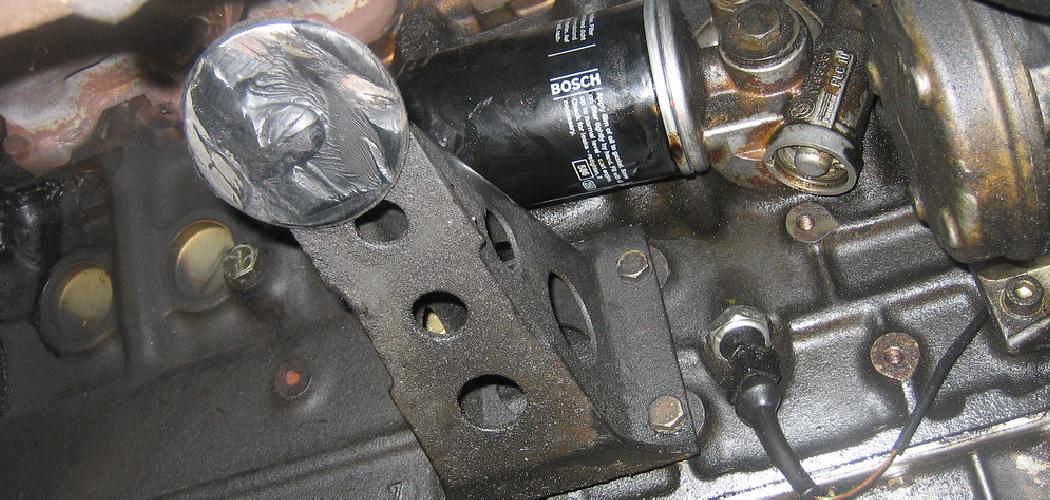There are several reasons why knowing how to tell if your oil pan gasket is leaking is important. Firstly, an oil pan gasket leak can significantly affect the performance of your vehicle’s engine.
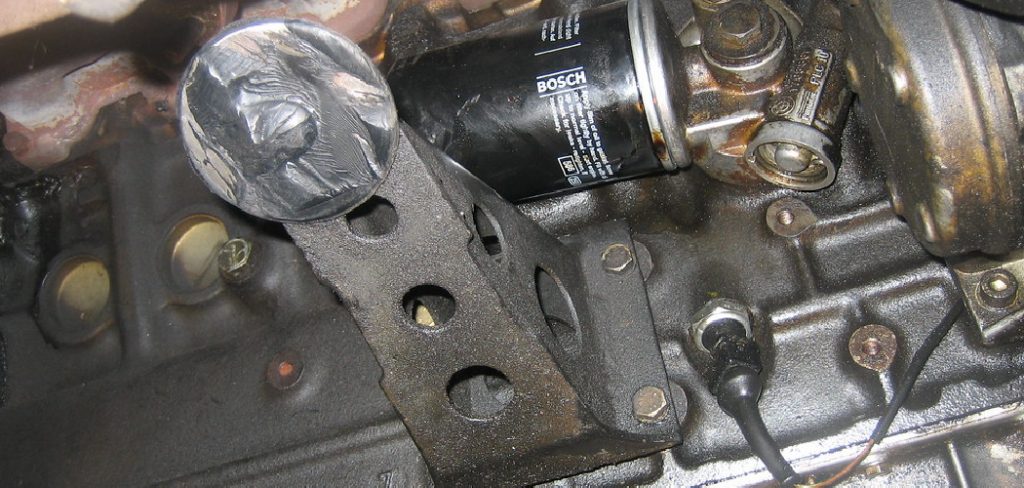
The gasket acts as a seal between the oil pan and the engine block, keeping the oil from leaking out. If this seal becomes compromised, it can result in oil leaking from the engine, leading to a loss of lubrication and potentially causing serious damage.
The main advantage of knowing how to tell if your oil pan gasket is leaking is that it allows you to catch the issue early on. By regularly checking for signs of leakage, you can prevent more serious and costly damage to your engine. You can find step-by-step instructions on how to tell if oil pan gasket is leaking in this blog article.
Step by Step Processes for How to Tell if Oil Pan Gasket is Leaking
Step 1: Inspect the Oil Pan
The first step in checking for a leaking oil pan gasket is to visually inspect the oil pan itself. Make sure it is not dented or damaged, as this can lead to leaks. Using a flashlight, check for any visible signs of oil leakage on and around the oil pan. If you spot any wet patches or oil drips, it could be a sign of a leaky gasket.
Step 2: Check the Oil Level
If your oil level seems to be dropping quickly, it could be due to a leak in the oil pan gasket. Keep an eye on your oil levels and if they consistently drop without explanation, it’s time to inspect for leaks. Park your car on a flat surface and check for any oil drips underneath. If you notice oily spots or puddles, it’s likely that your oil pan gasket is leaking.
Step 3: Inspect the Gasket Area
Take a closer look at the area where the oil pan meets the engine block. If you notice any oil residue or liquid, it’s a clear indication of a leak. Loose or damaged bolts can also cause oil pan gasket leaks. Inspect the condition of the bolts and tighten them if needed.
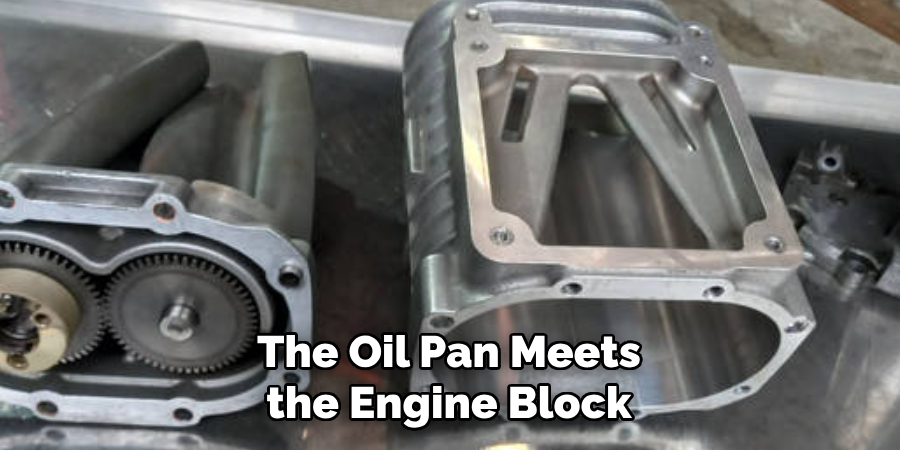
Step 4: Look for Foam/Bubbles in the Oil
If there is coolant mixing with your oil, it can cause bubbling or foaming in the oil. This could be a sign of a leaking gasket. If you’re still unsure whether your gasket is leaking, try doing an oil change. This will allow you to inspect the used oil for any signs of coolant or metal particles, which could be indicative of a gasket leak.
Step 5: Check for Engine Misfires
A leaking oil pan gasket can also lead to engine misfires. If you notice your engine is stalling or running rough, it could be due to low oil pressure caused by a gasket leak. If you’re still unsure whether your oil pan gasket is leaking, it’s best to seek professional help. A mechanic will be able to give you a definitive answer and make any necessary repairs.
By following these steps, you can quickly and easily determine if your oil pan gasket is leaking. Remember to inspect regularly and address any leaks promptly to avoid further damage to your engine. So make sure to keep an eye out for any signs of a leaky gasket and take action if needed.
Precautions for How to Tell if Oil Pan Gasket is Leaking
- Check for Oil Puddles – One of the most obvious signs of a leaking oil pan gasket is the presence of oil puddles underneath your car. If you notice any dark, slick spots under your vehicle after it has been parked for a while, this may be an indication that your oil pan gasket is leaking.
- Monitor Your Oil Levels – Another way to tell if your oil pan gasket is leaking is by regularly checking your oil levels. If you notice that your oil levels are consistently low, even after an oil change, this could be a sign of a leak.
- Look for Oil Stains on the Engine – In addition to puddles under the car, you may also see visible stains or streaks of oil on the engine. This can be a strong indication that your oil pan gasket is leaking.
- Pay Attention to Your Oil Pressure Warning Light – If your oil pressure warning light comes on while driving, this could signal a leak in your oil pan gasket. It’s important not to ignore this warning and have your car checked by a mechanic as soon as possible.
- Check for Strange Noises – A leaking oil pan gasket can also cause strange noises from your engine, such as knocking or grinding sounds. If you notice any unusual sounds from your car, it’s best to have it inspected by a professional.
- Inspect the Oil Pan Gasket for Visible Damage – You can also physically inspect the oil pan gasket for any signs of damage or wear and tear. If you notice cracks, tears, or other damage to the gasket, it’s likely that it needs to be replaced.
- Regularly Maintain Your Vehicle – One of the best ways to prevent a leaking oil pan gasket is by regularly maintaining your vehicle. This includes getting regular oil changes and keeping all engine components in good working condition.
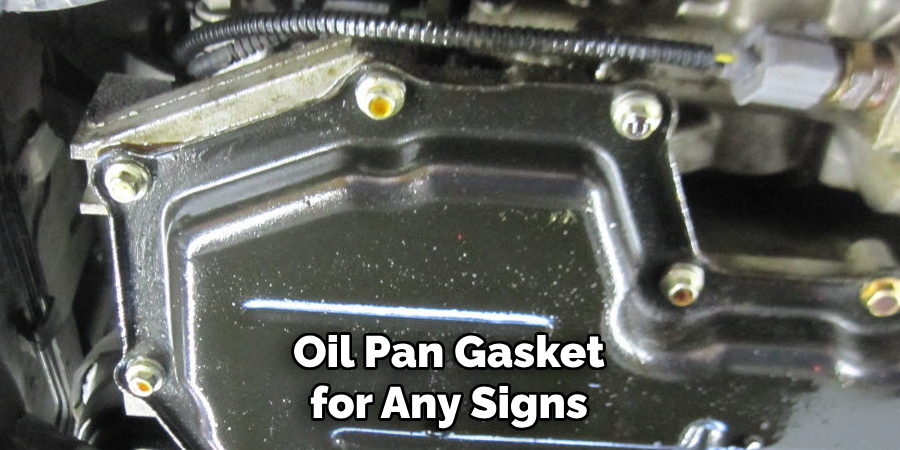
By following these precautions, you can ensure that your oil pan gasket remains in good condition and avoid potential leaks. It’s important to address any issues with your gasket as soon as possible to prevent further damage to your engine and ensure the safety of your vehicle.
What Are the Common Signs of a Leaking Oil Pan Gasket?
There are a few common signs that can indicate a leaking oil pan gasket. These include:
- Oil Spots or Puddles Under Your Car: One of the most obvious signs of an oil pan gasket leak is seeing oil spots or puddles underneath your vehicle after it has been parked for a while. This usually means that oil has dripped from the engine and accumulated on the ground.
- Burning Oil Smell: If you notice a strong, burning oil smell while driving or after parking your car, it could be a sign of an oil pan gasket leak. This is because the leaking oil can come into contact with hot engine components and produce a noticeable odor.
- Low Engine Oil Level: Another common sign of a leaking oil pan gasket is a low engine oil level. If you regularly check your car’s oil level and notice that it is consistently lower than normal, it could be due to a leak in the gasket.
- Poor Engine Performance: An oil pan gasket leak can also affect the overall performance of your vehicle’s engine. This is because the leaking oil can reduce the amount of lubrication and cause friction between moving parts, leading to engine damage and decreased performance.
- Oil Warning Light: Some cars are equipped with an oil pressure warning light that will illuminate when the oil level is low. If you see this light come on or stay on while driving, it could be a sign of a leaking oil pan gasket.
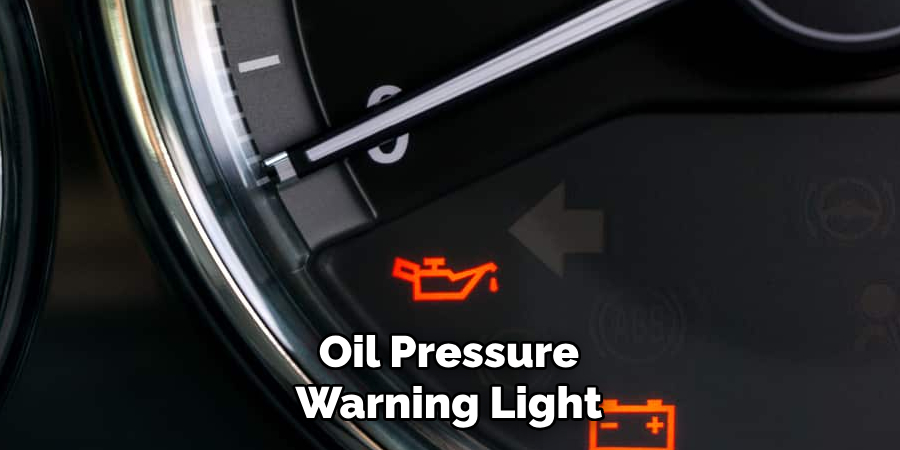
If you experience any of these signs, it’s important to have your car inspected by a mechanic as soon as possible. A leaking oil pan gasket can lead to serious engine damage if left untreated, so it’s best to address the issue promptly. Additionally, regular maintenance and inspections can help catch potential leaks early on and prevent more costly repairs in the future.
What Are the Potential Consequences of Ignoring a Leaking Oil Pan Gasket?
Leaking oil pan gaskets are a common issue that many car owners face. While it may seem like a minor problem, ignoring a leaking oil pan gasket can have serious consequences for both your vehicle and your wallet. One of the most immediate consequences of ignoring a leaking oil pan gasket is the loss of motor oil.
The gasket serves as a seal between the oil pan and the engine block, preventing oil from leaking out. When the gasket is compromised, oil can leak out of your vehicle and onto the ground. This not only creates a mess, but it also leads to a loss of critical lubrication for your engine components.
Without proper lubrication, these components can wear down quickly and cause expensive damage. The longer you ignore the leaking gasket, the more oil you will lose and the higher the risk of engine failure becomes. This can result in costly repairs or even a complete engine replacement.
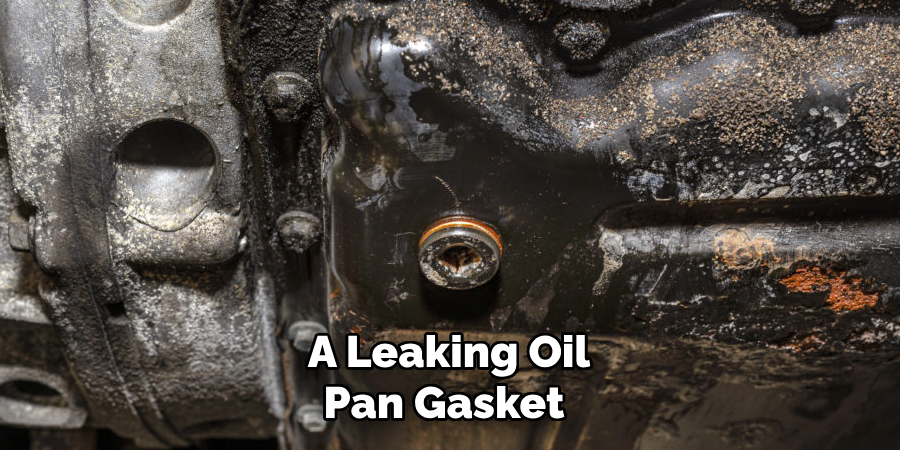
Furthermore, a leaking oil pan gasket can also lead to an increase in your vehicle’s emissions. Oil that leaks onto hot engine components can burn and produce harmful gases that are released into the atmosphere. This not only harms the environment but can also lead to your vehicle failing emissions tests, resulting in fines or failed inspections.
Conclusion
In conclusion, knowing how to tell if an oil pan gasket is leaking is essential for maintaining the overall health and longevity of your vehicle. Regularly inspecting and monitoring your engine for any signs of a leak can save you from potential expensive repairs in the future.
If you do notice any signs of a leak, such as oil spots on the ground or a burning smell coming from your engine, it is important to address the issue immediately.
Ignoring a leaking oil pan gasket can lead to serious damage to your engine and potentially put you and others on the road at risk. In some cases, fixing a leaky oil pan gasket may be a simple DIY job, but it is always recommended to consult a professional mechanic for proper diagnosis and repair.
I hope this article has been beneficial for learning how to tell if oil pan gasket is leaking. Make Sure the precautionary measures are followed chronologically.

